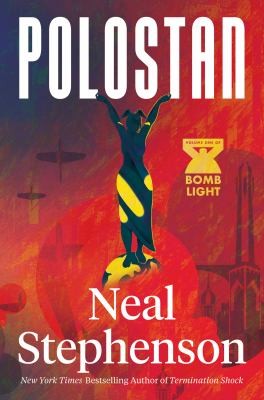They love cooking monsters
User Profile
This link opens in a pop-up window
birdfang's books
User Activity
RSS feed Back
birdfang finished reading Banzeiro Òkòtó by Eliane Brum
birdfang quoted Banzeiro Òkòtó by Eliane Brum
But why do these elected despots offer up a past that never existed? Herein lies another secret. The answer is that they have no future to offer. The future is the climate collapse, which they try hard to deny, but it is happening. The future is bad. To win power and hold on to it, they must sell a past that never existed and deny the future. It is vital to understand that they only win and hold on to power by denying the future and replacing it with neofascism’s foundational lie. So the fight for the future is also by consequence a fight for the past.
birdfang finished reading Delicious in Dungeon, Vol. 01 by Ryoko Kui (Delicious in Dungeon, #01)
birdfang wants to read La nature en révolution by François Jarrige

La nature en révolution by François Jarrige, Thomas Le Roux, Jean-Baptiste Fressoz, and 2 others
Révolutions, industrialisation, colonisation : ce livre propose un nouveau regard sur la France de 1789 à 1870. Comment cette nation …
birdfang quoted Banzeiro Òkòtó by Eliane Brum
I destructured in the Xingu and went to pieces. And going to pieces is risky, because once it happens there’s no going back. It means you can no longer conform to a single-minded structure, and so you’ll never go back to feeling comfortable, perhaps you won’t even go back to being coherent. You’ll find yourself dis-conformed. Before, you had been deformed by form, but once you are dis-conformed, you can transmute into multiple forms, and this is amazingly scary.
birdfang quoted Banzeiro Òkòtó by Eliane Brum
Being discovered is the curse of all those who can only exist if they are forgotten.
birdfang quoted Banzeiro Òkòtó by Eliane Brum
When Brazil began importing European settlers, latifundiários—owners of vast ranch lands—were the dominant political and economic force in Rio Grande do Sul. A large slice of the northern half of the state, which has nothing in common with the ecosystem of the pampa, was still what white people usually consider “no-man’s-land” or “wilderness.” Throughout Brazil’s history, whenever these expressions have been used, the lands in question were occupied by the Indigenous or, more precisely, they were lands where the Indigenous had not yet been driven out or fully exterminated. What they call “no man” are the original peoples, people who today are regarded as “almost human” by rulers such as Jair Bolsonaro and by grileiros—the ones in the Amazon and the ones in Congress. During the centuries of the first invasions, the Indigenous people, like Black people, were not considered human, not even “almost.” They didn’t even have souls, according to the whites who had been endowed with souls but used them to enslave and kill.
birdfang finished reading La Tannerie by Celia Levi
birdfang quoted Vertical motion by Canxue
Even though people never descended to our underground, we actually gained all kinds of information about the mortals above us. I don’t know what sort of channel this information came from. It is said that it was very mysterious, and that it had something to do with our builds. I’m an average-sized, ordinary individual of my genus. Like everyone else, I dig the earth every day and excrete.
— Vertical motion by Canxue
birdfang finished reading Three Eight One by Aliya Whiteley
birdfang finished reading Tokyo These Days, Volume 1 by Taiyô Matsumoto (Tokyo These Days, #1)

Tokyo These Days, Volume 1 by Taiyô Matsumoto (Tokyo These Days, #1)
The winner of multiple Eisner Awards, author Taiyo Matsumoto explores the relationships between a manga editor, manga creators, art, and …
birdfang finished reading Polostan by Neal Stephenson

Polostan by Neal Stephenson
The first installment in Neal Stephenson’s Light cycle, Polostan follows the early life of the enigmatic Dawn Rae Bjornberg. Born …
birdfang started reading Polostan by Neal Stephenson

Polostan by Neal Stephenson
The first installment in Neal Stephenson’s Light cycle, Polostan follows the early life of the enigmatic Dawn Rae Bjornberg. Born …
birdfang finished reading Wild Seed by Octavia E. Butler (Patternmaster, #1)

Wild Seed by Octavia E. Butler (Patternmaster, #1)
In an "epic, game-changing, moving and brilliant" story of love and hate, two immortals chase each other across continents and …











